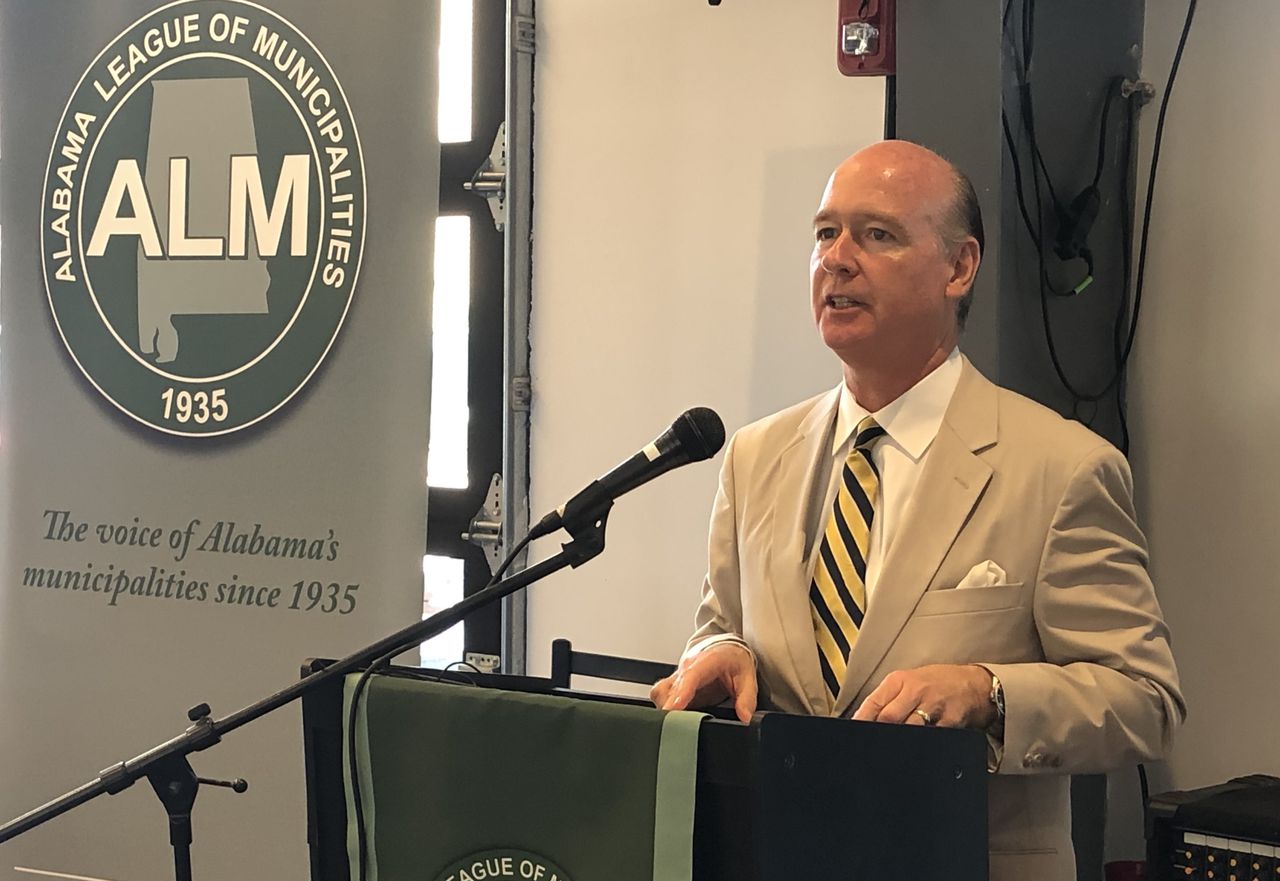Alabama congressman: âWeâre very encouragedâ on strategy to win back Space Command
Alabama lawmakers met as recently as this week to hammer out a plan to reverse the decision to place Space Command headquarters in Colorado Springs, Colo., instead of Huntsville.
Congressman Robert Aderholt, speaking at an Alabama League of Municipalities luncheon Thursday in Guntersville, described the conference call about the state’s representatives in Washington.
Related: Losing Space Command HQ to Colorado costs Alabama 600 new private sector jobs
Related: A long shot for Alabama to win back Space Command? ‘I don’t think it is,’ congressman says
“We’re all pulling together,” Aderholt told the crowd of about 75 people. “And we’re very encouraged that we can change the course. This is not something we just have to write off and say, ‘Oh, well, it’s Colorado Springs. Because this was not to be a political decision. This was a decision to be made on the merits. Huntsville won.
“We can’t be deciding where our military installations are going to be based on political decisions. We’ve got to decide where they are best for our military.”
Alabama lawmakers are scrambling to fight the White House decision to allow Space Command HQ to remain at its startup location in Colorado Springs. Multiple studies and assessments found that Redstone Arsenal in Huntsville is the best site while Colorado Springs finished fourth in some evaluations in fifth in others.
Aderholt, the dean of Alabama’s congressional delegation, said the delegation believes it’s well-positioned to wage a fight over the Space Command decision based on its committee assignments. That includes Mike Rogers of Saks as chair of the House Armed Services Committee as well as Dale Strong, whose north Alabama district includes Huntsville and Redstone Arsenal.
On the appropriations side, Aderholt has been a longtime member and Jerry Carl of Mobile is also a member of the committee.
In the Senate, Tommy Tuberville is a member of the Armed Services Committee while Katie Britt is on the Appropriations Committee.
“I think we’re on several key places that we can try to keep the pressure on the Biden administration to say, ‘This should not be a political decision. It should be a decision on the merits.’ And quite honestly, if they come back and say that it should be in some other city or some other state and it’s done on the merits, then I can honor that. But when it’s done politically, that’s when I think most of us have some real concerns.”
Rogers is taking the lead on Alabama’s pushback and on Thursday he called for an investigation into the decision-making process by the Government Accountability Office. Rogers and Strong have also requested Space Command Gen. James Dickinson and Air Force Secretary Frank Kendall to testify before the House Armed Services Committee.
Aderholt also said the power of the purse strings held by Congress should not be overlooked.
“The President has zero money,” Aderholt said. “So until he’s given the money to build it … and what I think one of the theories is from our standpoint, the Alabama delegation standpoint, is that, Do we want to set a precedent that our military bases are going to be decided on political decisions going forward, instead of on the merits?”
Still, as Aderholt acknowledged during his speech, “Obviously, the president does carry some big weight with that (decision), being commander-and-chief. But this was not to be a political decision.”
The political decision rhetoric, of course, centers on the fact that Colorado voters supported Biden in his election in 2020 and is generally considered a Democratic state. Alabama, meanwhile, is considered one of the most conservative states in the country and has not supported a Democratic presidential candidate since Jimmy Carter in 1976.
Generating bipartisan support to oppose the Space Command decision is another aspect of Alabama’s approach. Alabama Congresswoman Terri Sewell, the only Democrat in the state’s delegation, has also spoken out against Biden’s decision on Space Command.
“We don’t want to set the precedent and I don’t think any member – Democrat or Republican – (wants to set the precedent),” Aderholt said. “Or does that mean when there’s a Republican-elected president, they’ll put it where they want to. And then the Democrat puts it where they want to. So I think that sets a bad precedent. Those that are focused on the military know that that does not send a good message that you’re making your military decisions based on politics.
“And so I think that’s where we’re angling this. And we’re hoping that I think this will resonate with Democrats and Republicans and it won’t be a Republican or Democrat issue.”
